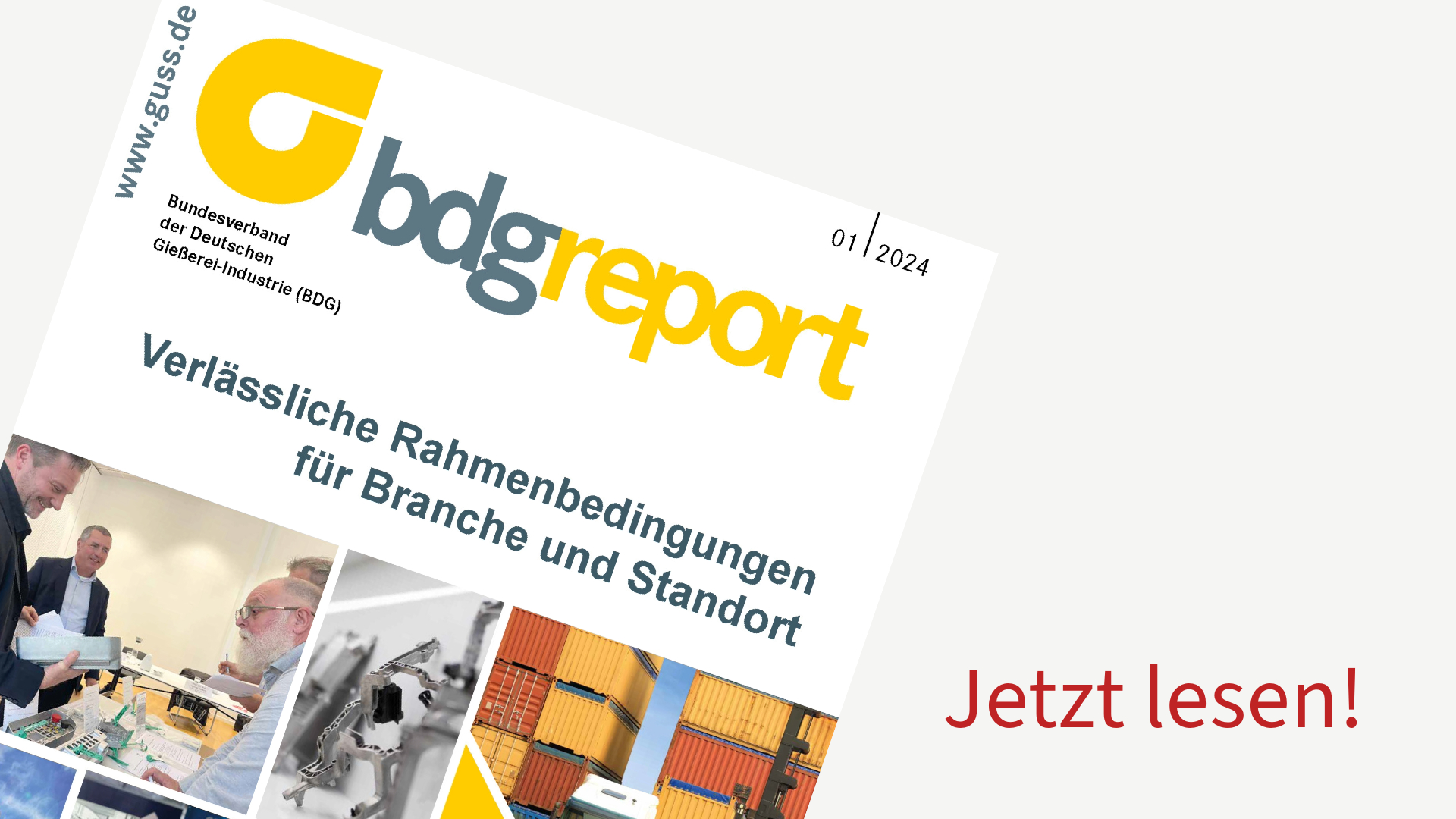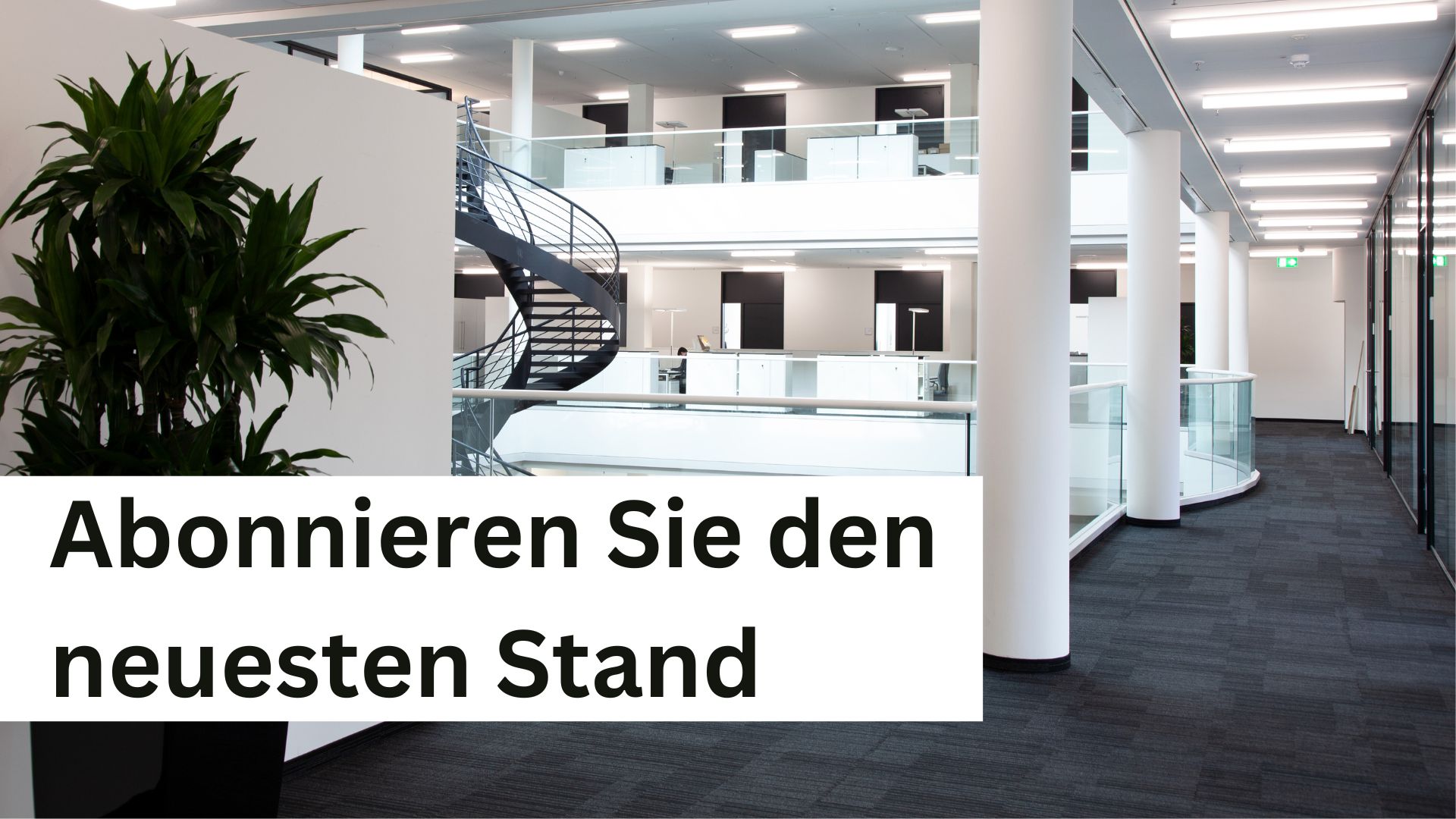Exploding procurement costs for raw materials necessitate more intensive customer/supplier relationships
The effects on Germany’s foundry industry of the sanctions on Russia
March 17th, 2022
The German Foundry Association (BDG) strongly condemns the aggressive war against Ukraine and welcomes the sanctions against Russia. Nevertheless, the trade association stresses the seriousness of the situation and asks purchasers to enhance their relationships with their casting suppliers and to jointly bear the risks – to ensure that the value-creation chain can be maintained in Germany. The effects of the sanctions against Russia are causing foundries difficulties that they have never experienced before – and that threaten the existence of the entire industrial sector in Germany.

The situation facing foundries is potentially disastrous: the economic conse-quences of existing contracts with customers are devastating for foundries. The purchasing decisions of foundries are largely speculative at present. So it is par-ticularly important that the customer/supplier relationship gains a new quality. Casters and their customers must urgently meet to discuss the foundries’ future procurement situation together and share economic risks – far beyond existing material price adjustment clauses. In many cases, it will be necessary for foundries and buyers to coordinate closely regarding products, orders and even batches. It is time to define and discuss all parameters:
- Does the customer really need the castings at the agreed time?
- Can the specifications for the casting be changed to save material?
- Does the caster really need all the input materials in the planned quantities in order to produce the desired properties of the cast component?
- Must the pre-material be purchased immediately, or would later procurement be sufficient?
- What is happening to the price of the input material?
- Will enough material still be available in the near future?
- What effect does the joint consideration of alternatives have on raw material procurement requirements?
These are just some of the questions that should be discussed together in the current raw material situation. This process should encourage a mutual under-standing of the situation. The most important thing, however, is to ensure the ability of Germany’s foundry industry to survive – and thus guarantee retention of the country’s entire value-creation chain.
The background:
Russia’s aggressive attack on Ukraine triggered sanctions that apply for many input materials that can currently only be purchased at maximum prices. These include raw materials important for the foundry industry, including aluminum, nickel, zinc, magnesium and metallic input materials. Many existing framework contracts to supply materials have now been suspended. Binding offers increasingly only exist for a few hours or even minutes.
The situation regarding foundry pig iron for iron and steel foundries is particularly dramatic at present. 25 percent of the pig iron used in German foundries originates in Russia. These deliveries have now suddenly stopped and are completely inaccessible. All attempts to replace the missing pig iron from other sources worldwide show how tautly balanced supply and demand have been up to now. There are simply insufficient deliverable alternatives. Ultimately, the worldwide shortage has so far peaked in a doubling or trebling of the price of pig iron. No end to the price increases is in sight and, even worse, the availability of scrap is also becoming considerably more limited and therefore more expensive. Scrap is currently almost 100% more expensive than this time last year. In some cases, no delivery promises are made at all any more. The urgently required material is simply unavailable.
The Russian invasion of Ukraine has also led to considerable disruptions in logistics worldwide. Hundreds of ships are stuck in ports, cargos must be diverted, and freight rates are rapidly rising. Truck deliveries are also limited – there are not enough personnel to drive them, so deliveries are delayed or fail to arrive at all. Furthermore, the enormous increase in the price of diesel has considerably impacted the price of each freight kilometer.
In addition to these material bottlenecks, foundries are facing rising energy costs, a lack of personnel, and increases in material costs due to other causes. As a result of the low average operating margins in the sector, the wide-ranging cost burdens are leading to some companies considering significantly cutting back production or even closing down altogether.
The procurement bottlenecks affecting many raw and input materials will not be over soon, and attempts to offset them are unlikely to bear fruit. On the one hand, the supply bottlenecks caused by the stoppage of deliveries from Russia will not be eased by this source becoming available again in the foreseeable future. So it will no longer be possible to obtain raw materials from Russia for a long time. On the other hand, in some fields the other market participants will not be in a position to take advantage of the changed demand situation by means of short-term production adjustments.




